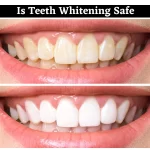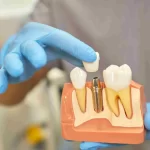How to Prevent Teeth Grinding
Human teeth are the small, calcified, hard, whitish structures found in the human mouth. They function in mechanically breaking down items of food by cutting and crushing them in preparation for swallowing and digestion. Teeth are made of enamel: The hardest, white outer part of the tooth and Dentin: a layer underlying the enamel. However, there are dental problems are never any fun and are affecting the teeth — bad breath, tooth decay, gum (Periodontal) disease, Oral Cancer, mouth sores, tooth erosion, tooth sensitivity, and a lot more. Also, there are disorders such as teeth grinding.
Most people probably grind and clench their teeth from time to time, medically called bruxism. Occasional teeth grinding, does not usually cause harm, but when teeth grinding occurs on a regular basis the teeth can be damaged and other oral health complications can arise. Bruxism is due to clenching of the teeth other than in chewing and is associated with forceful lateral or protrusive jaw movements. This results in grinding or rubbing the teeth together. People can clench and grind without being aware of it during both the day and night, although sleep-related bruxism is often the bigger problem because it is harder to control.
In severe, chronic cases, it can lead to arthritis of the temporomandibular joints. The jaw clenching that often accompanies bruxism can also be an unconscious neuromuscular daytime activity, which should be treated as well, usually through physical therapy including recognition and stress response reduction. Clenching the teeth puts pressure on the muscles, tissues, and other structures around your jaw. Grinding can wear down the teeth. Grinding can also be noisy enough at night to bother sleeping partners.
If the condition persists, there are things that can be done.
- One can wear mouth guards to improve their situations, but they are not without drawbacks. Over time, a mouth guard can become worn down and lose its effectiveness. Further, when sufferers have tried to stop using the mouth guard, they have generally found that the pain and symptoms return, making it more of a patch up remedy than a permanent solution.
- Avoiding foods and drinks that contain high concentrations of caffeine or alcohol is recommended as these can enhance grinding. Also, one should avoid any unnecessary chewing. Stay away from things like chewing gum as it embeds clenching and grinding into your muscle memory.
- Relax jaw muscles with a warm washcloth or a heating pad at least once a day to ease their tension.
- Avoid alcohol. Grinding tends to intensify after alcohol consumption.
- Train yourself not to clench or grind your teeth. If you notice that you clench or grind during the day, position the tip of your tongue between your teeth. This practice trains your jaw muscles to relax.
Basically, these are the things that could help you control and eventually stop teeth grinding. Remember that its treatment will be under your control; these are just easy things to do, thus, there is no single reason you cannot start correcting your teeth grinding.

















